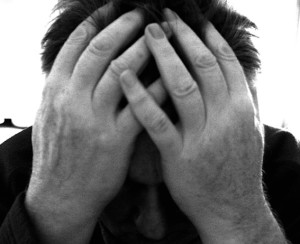The Signs & Symptoms of Depression
 Its not uncommon for people to experience some depression at one point or another during their lifetimes. The symptoms that manifest as a result of depression can last for a significant length of time if the individual is not willing or able to seek help.
Its not uncommon for people to experience some depression at one point or another during their lifetimes. The symptoms that manifest as a result of depression can last for a significant length of time if the individual is not willing or able to seek help.
(If your or someone close to you has been struggling with depression, there are clinical trials which could be of help.)
People who are depressed may exhibit any of the following symptoms:
- Feelings of emptiness and sadness
- Low drive or passion for things that used to interest them
- Prone to seemingly random outbursts over small or irrelevant matters
- Trouble sleeping and even chronic insomnia
- Lack of energy or motivation to even complete small tasks
- Some may lose their appetite while others may struggle with specific food cravings and weight gain
- Increased anxiety, restlessness or agitation
- Feelings of worthlessness or guilt which may culminate in excessive fixation over past failures or humiliations
- Issues concentrating on work or critical thinking
- Physical manifestations such as headaches or back pain
- Some may start to contemplate death or entertain suicidal thoughts
Depression is a condition that can range widely in severity. Some people may just be feeling lower motivation or unhappiness without being really knowing the reason. Others may have developed depressive symptoms that are so severe, they’ll require extensive therapy to be able to cope.
Different Types of Depression
Depression is not the same from case to case, it affects each patient in varying ways. For this reason, doctors tend to add specifiers to their diagnosis in order to clarify to the patient what type of depression they are coping with. The different types of depression are distinguishable based on specific characteristics, such as:
- Mixed characteristics – the patient exhibits mania and depression simultaneously, including manic behaviors such as excessive talking, rapid thoughts, and hyper-inflated self-esteem.
- Anxious distress – abnormal levels of anxiety or restlessness concerning loss of control or possible events.
- Atypical characteristics – patients exhibit increased appetite, sensitivity to rejection, a heavy feeling in arms or legs, little need for sleep, and the ability to be cheered by happy events.
- Melancholic characteristics – patients exhibit severe depression compounded by a complete lack of reaction to activities that used to elicit pleasure, rousing early in the morning, critical changes in appetite, elevated feelings of agitation, guilt and sluggishness.
- Catatonia – patients exhibit uncontrollable and seemingly purposeless movements in their limbs or a completely immovable posture.
- Psychotic characteristics – patients exhibit severe depression coupled with hallucinations or delusions, these can revolve around specific themes such as personal inadequacies or other negative feelings.
- Peripartum onset – symptoms develop during pregnancy or during the postpartum period.
- Seasonal pattern – depression that is actually linked to changes in the seasons and less exposure to sunlight.
If you feel that you’ve been struggling with the effects of depression, please consider talking to your doctor about it as soon as possible. The symptoms of depression will most likely get worse if steps aren’t taken to correct the underlying issues. In some cases, people may develop further mental and physical complications if they do not address their depression. Others may eventually entertain thoughts of suicide.